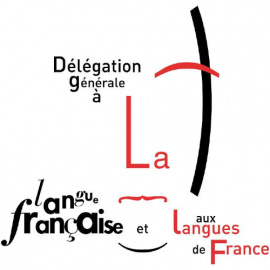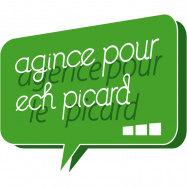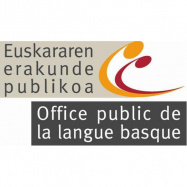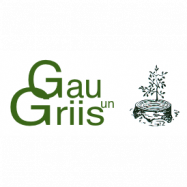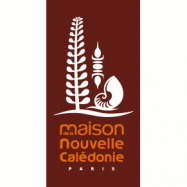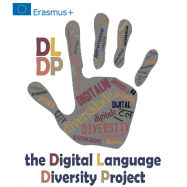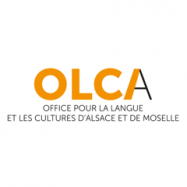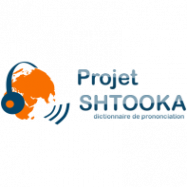LinguaLibre
LinguaLibre:A prepaus
Revision as of 13:42, 25 November 2020 by WikiLucas00 (talk | contribs) (Created page with "Manca d’oralitat : se las lengas son d’en primièr parladas (solament 4000 de las 7000 lengas del mond an un sistèma d’escritura) $4, lo partatge de coneissenças e...")
Lingua Libre es un projècte de l’associacion Wikimédia France qu’a per tòca de construsir un corpus collaboratiu multilingüe audiovisual amb una licéncia libra per : * augmentar la coneissença sus las lengas, dins las lengas e d’un biais audiovisualsul web, dins los projèctes Wikimedia projects e en defòra ; * sosténer lo desvolopament de comunautats linguisticas en linha , especialament aquelas que son pauc dotadas, minoritàrias, regionals , oralas o signadas — per ajudar aquelas comunautats a trapar en linha d’informacions e per assegurar la vitalitat la vitalitat de las lengas d’aquelas comunautats.
Cossí participar ?
Sus Lingua Libre podètz explorar e tornar utilizar d’enregistraments, contribuir al còrpus en enregistrant de mots o melhorar lo site, en concertacion amb la comunautat.
Lo Record Wizard permet l'enregistrament, la categorizacion e la publicacion dins Wikimedia Commons d'enregistraments audio o video (1 mot, 1 locucion) a partir d'un ordenador o d’un telefonet intelligent. Per aquò far, vos cal connectar o crear un compte d'utilizator. La guida d'utilizator es disponibla sus la pagina d'ajuda.
Per modificar las paginas del site web, se cal connectar e clicar sus « modificar ». Per ajustar de paginas, i a doas etapas : dintrar lo títol de la pagina que volètz crear dins lo navigator, amb lo prefixe "Lingua Libre:". Un messatge prepausant de crear la pagina apareisserà. Per una modificacion importanta, vos pregam de consultar primièr la comunautat.
Perqué participar ?
Lingua Libre foguèt creada a partir de l'observacion de mancas divèrsas dins los projèctes Wikimedia e sus la tela en general :
Manca de diversitat : se la tela es en teoria dobèrta a totes, son contengut es luènh de representar totas las lengas d’un biais proporcional. Mai de 50% dels sites web son en anglés ; solament 301 de las 7 000 lengas del mond an una enciclopèdia liura [1], que lo contengut i es inferior en quantitat e en qualitat al de las lengas mièlhs dotadas coma l'anglés [1][2]. De mai, aquestes sites albèrgan de contenguts que correspòndon a las nòrmas e als besonhs occidentals. Aquò explica e contribuís a lor manca de diversitat lingüistica.
Manca d’oralitat : se las lengas son d’en primièr parladas (solament 4000 de las 7000 lengas del mond an un sistèma d’escritura) [4], lo partatge de coneissenças e la comunicacion mercés a las novèlas tecnologias, se fa mai que mai a l'escrich, notadament sus la tela (malgrat lo format multimèdia qu'o permet). Aquela mediacion de l’oral per l’escrich limita las contribucions de mai d’un biais, coma, per exemple, l’utilizacion de caractèrs Unicode, la cultura de l’escrich, l’estandardizacion ortografica de la lenga o lo taus d’alfabetisacion de la comunautat.
- These lacks of diversity and orality limit the ability of Internet users to communicate and contribute online to various web platforms where they cannot find content and communities sharing their language. Among the regional minority languages that are oral or signed, they threaten in particular the poorly endowed ones, many of which are currently in danger of extinction and for whom inclusion on the web is a major challenge and opportunity.
- Indeed, of the 7000 languages in existence today, it is estimated that only 2500 will survive to the next century and only 250 (less than 5%!) will make their digital ascent — i.e. be used regularly for communication purposes in the digital space by native speakers who are comfortable on the web — a factor which is yet essential for their vitality[5]. Current initiatives by linguists and activists to document and share data, resources and content online in the languages to be preserved do not directly contribute to the development of a digitally-ascendant linguistic community of Internet users, and thus remain limited in their impact.
- Lingua Libre aims to make up for this lack of support by placing itself at the service of linguistic communities wishing to insert and promote their language into the digital space by exploring alternative means of communication to the written word, in the hope that this will free up online communication in a growing number of languages. This objective favours by its very nature regional minority languages that are poorly endowed in terms of oral or signed language, but also benefits more endowed languages that wish to highlight their oral and visual aspects. To fulfil its mission, Lingua Libre offers an online solution for mass recording, leading to the publication of a collaborative multilingual audiovisual corpus under free licence, whose vocation is information through consultation, and revitalisation by triggering the contribution of new language communities on Lingua Libre and then outside.


